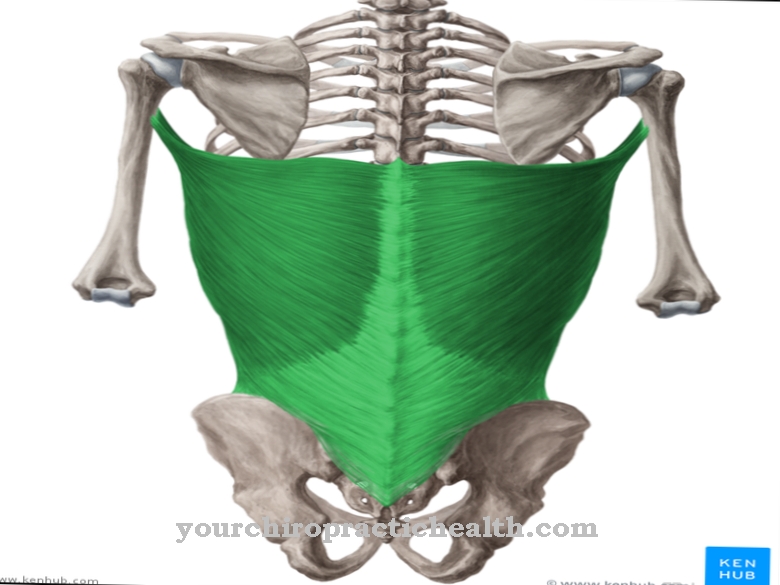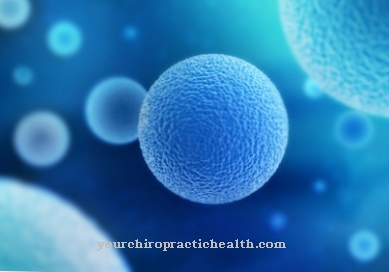As stomach pain one generally denotes different types of complaints and pain in the stomach and intestines. The medical term for stomach pain is Gastralgia. In addition to stomach pain, those affected also often suffer from abdominal pain or abdominal pain.
What are stomach pains?

Stomach pain is a symptom that most people have known since childhood. As the name aptly expresses it, the pain comes from the stomach or abdominal region.
A serious illness does not always have to be behind stomach pain. Stomach pain is usually quite harmless and goes away after a short time. Often, stomach pain is accompanied by diarrhea, vomiting, and nausea.
Stomach pain can also occur in the form of stomach cramps, in which the stomach pain then increases cyclically and over a short period of time. Stomach pain usually feels burning, stabbing, or sharp. Abdominal and stomach pain can only occur briefly or over a long period of time.
Stomach pain can be classified locally according to its zone. Seen in this way, there is stomach pain in the upper abdomen, in the lower abdomen as well as left and right. It should be noted that stomach pain does not necessarily have to arise in the stomach itself. Other organs can also be responsible, so that the pain stimulus then radiates into the abdominal or stomach region. Possible organs for this would mostly be the intestine, the pancreas and, more rarely, the heart.
causes
Since stomach pain often occurs with and with a wide variety of diseases, their causes are just as numerous.
Most of the time, stomach pains are rather harmless as a result of an upset stomach.
As already mentioned, disorders of other organs such as the pancreas, intestines and heart can also be the cause of stomach pain. A list of possible diseases as a cause can be found below.
Other causes of stomach pain are also: smoking, heartburn, stomach ulcer, medication, too much alcohol, poisoning (e.g. mushroom poisoning), stress, eating disorders, psychosomatic problems, too much food in the stomach and autoimmune diseases.
You can find your medication here
➔ Medicines for stomach ailments and painDiseases with this symptom
- abdominal influenza
- Mushroom poisoning
- Gastric ulcer
- Irritable stomach
- Gastric mucosal inflammation
- Duodenal ulcer
- Food poisoning
- Burnout syndrome
- Food allergy
Diagnosis & course
Stomach pain, also known as gastralgia, is not an independent disease, but it can occur in many different ways and can only be correctly classified after a detailed discussion with the patient concerned.
To do this, the doctor has to ask a few questions about the possible previous illnesses, living conditions or the duration and exact location of the stomach pain. The patient's physique must also be examined. This is done with blood and ultrasound exams, as well as gastroscopy.
Stomach pain manifests itself in different ways. Pulling, pressing or stabbing in the abdominal region can occur as well as cramps that occur at certain intervals. Constipation, vomiting, or diarrhea can accompany stomach pain and indicate a more serious illness.
Complications
In most cases, stomach pains are unproblematic and go away on their own after a few days, for example in the case of a gastrointestinal infection or poor diet. If there is a serious underlying disease, however, it can also lead to serious complications. In rare cases there may be an acute abdomen, which can be life-threatening if left untreated.
A ruptured appendix or stomach or an intestinal obstruction can also lead to serious complications if the underlying condition is not treated promptly. Stomach pain as a result of reflux disease can lead to a change in the cells in the esophagus and thus cause a so-called Barrett ulcer. Barrett's esophagus increases the risk of developing esophageal cancer and also makes it difficult to eat.
Stomach pain with diarrhea can cause other gastrointestinal problems, dehydration and various deficiency symptoms, if it persists for more than two to three days. When treating stomach pain, complications can usually be ruled out. However, dietary measures should first be discussed with a doctor so that the underlying disease can be treated in a targeted manner and without complications. In some cases, medication can aggravate stomach pain, for example if there is an allergy or intolerance.
When should you see a doctor?
Mild stomach pain may be a reason to rethink your eating habits. In acute cases, alkaline or light foods can calm the aching stomach again. Carbonated beverages or coffee should be avoided. If the pain in the stomach persists or if it gets worse every hour, a doctor should be consulted as soon as possible. Under no circumstances should those affected trivialize heartburn, bloating and stomach pain over a long period of time.
Mild stomach pain that occurs acutely after excessive alcohol consumption, nicotine abuse or similar sins can be treated yourself. Warmth, relaxation, massages, and light meals are helpful. If left untreated for a long time, stomach problems can become chronic. Severe, sudden stomach pain is always an alarm signal. They require a doctor's visit. The doctor will do some examinations after asking about possible triggers, eating and drinking habits. The laboratory results, sonographs or x-rays arranged by the doctor often clarify the cause of the pain. If necessary, a test for the gastric bacterium Helicobacter pylori should be undertaken.
A so-called irritable stomach can also cause stomach pain. The person concerned can treat this himself. Before doing this, however, other gastric dysfunction should be ruled out as the cause of the pain through careful differential diagnosis. If emotional stress causes stomach pain, a consultation with a psychotherapist may be indicated. Massage or relaxation techniques can also be helpful if you have a tendency to stomach pain.
Doctors & therapists in your area
Treatment & Therapy
Since the stomach pain can have many causes, a visit to the doctor is beneficial. If the pain persists for a long time or if it is very severe, a doctor must be consulted immediately anyway, as life-threatening illnesses may be behind it.
The doctor will then conduct a detailed survey of the stomach problems. These include questions such as: how long the stomach pain has been going on, where exactly the pain occurs and in what intensity, does the stomach pain depend on external or internal factors (e.g. with certain food or physical movements), which medication is being taken, is alcohol accumulated consumed and there are pre-existing conditions, such as gastric ulcer.
Then the doctor will examine the affected patient holistically. He will listen to the abdomen and stomach area with a stethoscope and palpate the abdomen. A gastroscopy, ultrasound scan, and blood test are only required if the medical history is unclear or if a suspected cause needs to be investigated more closely.
If no disease-related cause can be found, it can usually be assumed that the stomach pain is harmless. In this case, pain relievers such as analgesics, antispasmodics such as spasmolytics and stomach acid relievers should be prescribed by the doctor for treatment and pain relief. A change in diet and a ban on alcohol and tobacco products could also be useful. Depending on the individual symptoms, further treatment by psychotherapists can be carried out.
In self-treatment, the patient can often benefit from relief from gastrointestinal teas containing herbs such as lemon balm and chamomile, hot water bottles on the stomach and relaxation exercises such as progressive muscle relaxation and autogenic training.
Outlook & forecast
No universal prognosis can be given for stomach pain. The further course of this disease depends very much on the pain itself and the rest of the patient's health.
In most cases, the stomach pain indicates an intolerance or a spoiled food and disappears again when the ingredient has been broken down from the body. This can take several hours. It is not uncommon for stomach pain to be accompanied by diarrhea and vomiting, which is usually an infection in the gastrointestinal region. These infections do not necessarily have to be treated by a doctor and usually go away on their own.
The stomach should be spared. Funds from the pharmacy can be used to support the treatment. However, if the stomach pain is very severe and does not subside after a few days, a doctor should definitely be consulted. This can be a serious infection that the body cannot deal with on its own.
In the case of intolerance or allergies, the respective ingredient should be avoided in order to prevent stomach pain. Most stomach pains, however, do not require treatment and will go away on their own.
You can find your medication here
➔ Medicines for stomach ailments and painprevention
Stress and nervousness should be avoided at all costs. Smoking and heavy alcohol consumption should also be stopped. Gluttony and indulgence in eating just as often lead to stomach ache and can therefore be prevented.
A lot of exercise in the fresh air and in nature stimulates a healthy and good metabolism, so that the chance of stomach pain or intestinal problems is minimized. Drink herbal teas as a preventive measure and support your general stress resistance and vitality through preventive autogenic training or with the help of progressive muscle relaxation.
Home remedies & herbs for stomach pain
- Gentian helps with loss of appetite, indigestion and stomach ailments.
- Fennel, raw and steamed, has a beneficial effect on the stomach and intestines. Fennel also has a high vitamin C content.
- For stomach and intestinal complaints, drink a tea made from the following herbs: 10 grams of peppermint, yarrow, chamomile blossom and calamus root, 5 grams each of fennel, condurango bark and couch grass, 2 grams of centaury, 1 gram of wormwood and gentian root each.
- Drink unsweetened chamomile tea for stomach pain, stomach inflammation and stomach cramps. It also helps with stomach pain and bladder pain.
- Various measures can be taken for stomach pain: drink a cup of wormwood tea and swallow a few caraway seeds. For one day only eat rusks and drink chamomile tea and place a hot water bottle on your stomach.
You can do that yourself
Stomach pain can often be relieved by following a diet that is gentle on the stomach for several days. Rusks and white bread are easy to digest, the mucilage contained in rice and gruel soup soothes the damaged gastric mucosa. After a few days of light food, low-fat and mildly spiced dishes can enrich the menu. Grated apples, [[bananas] and other mild fruits are usually well tolerated. Alcohol, coffee and nicotine, on the other hand, should be avoided for some time; a sensitive stomach also often reacts irritably to carbonated drinks.
Chamomile tea or a herbal tea mixture made from lemon balm leaves, chamomile flowers and peppermint leaves helps the aching stomach to recover. To do this, several cups of warm tea without sugar should be drunk throughout the day - food and drinks that are too hot or ice-cold are a burden on the stomach and can increase pain.
In many cases, cramp-like stomach pains can be relieved by putting on a hot water bottle. If stress or great psychological stress affects the stomach, regular rest breaks and relaxation help to improve. Hectic eating under time pressure can also lead to stomach pains: Slow, conscious enjoyment of the meal without the distraction from outside by mobile phone, computer or television helps here. If the stomach pain persists for several days despite self-treatment or if it even intensifies, a doctor should be consulted.








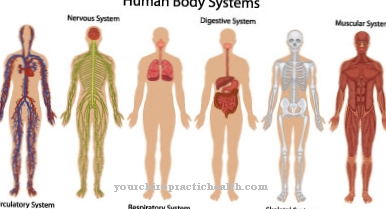
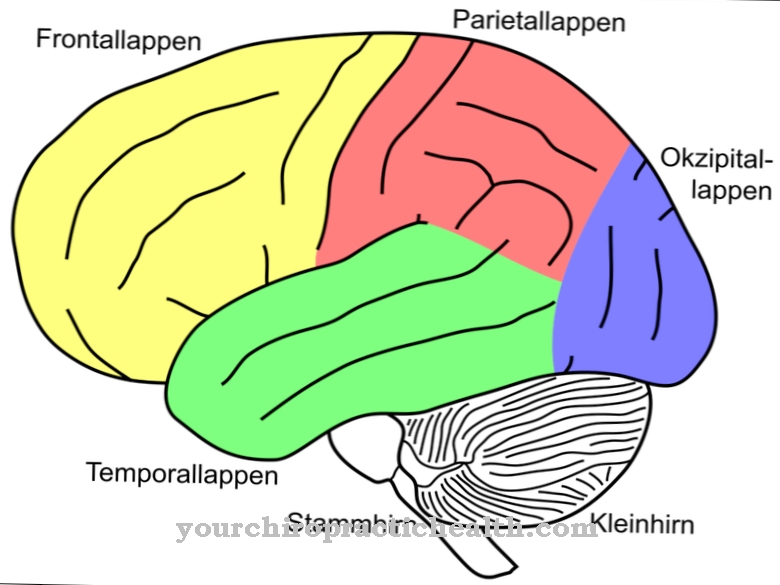
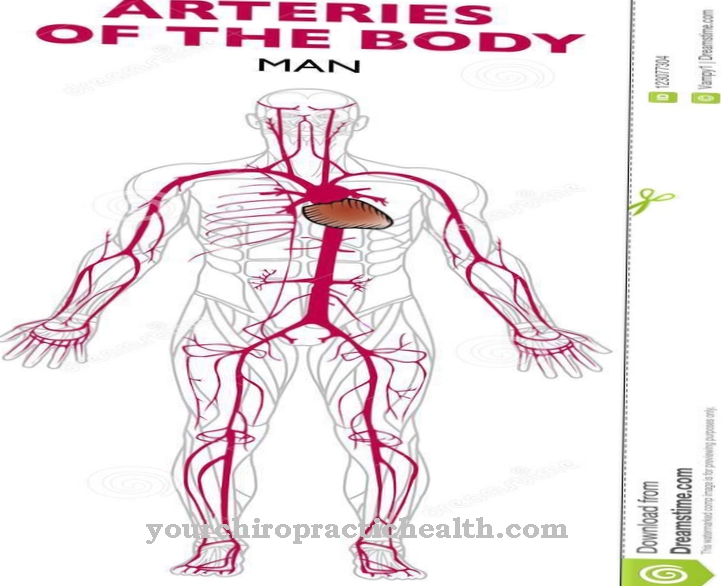
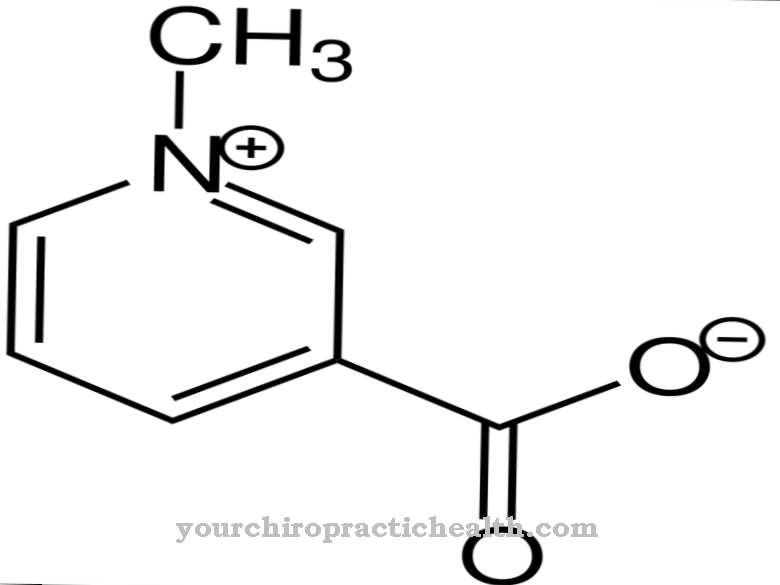



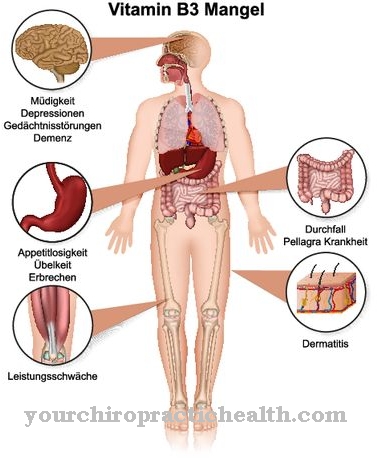

.jpg)




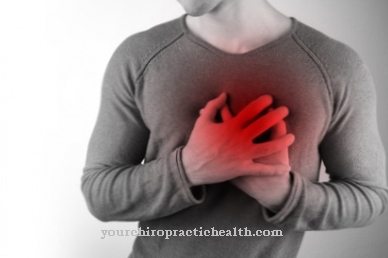


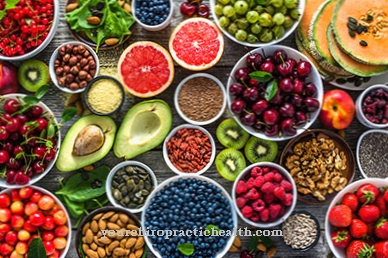
.jpg)
